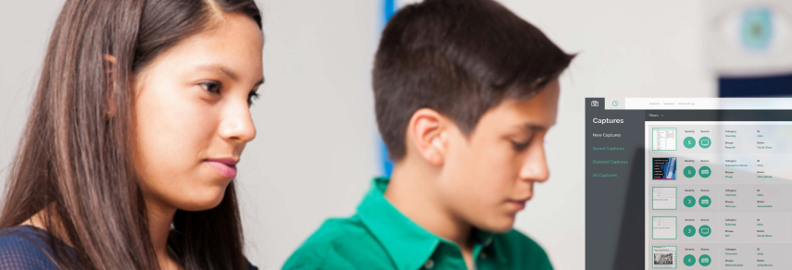When Securus detects an incident it is highlighting a potential threat to a child, not a technology issue and we recommends that alerts on the system are monitored by one or more designated e-Safety officers within the school. This briefing document outlines recommendations for reviewing captures and dealing with incidents.
How often should captures be reviewed?
The frequency at which captures made by Securus are reviewed will depend on the situation within individual schools. Some schools choose to review captures on a weekly basis, or only when a specific incident occurs. However, Securus recommends that the capture review process should take place at least once a day. In this way, the task is made more manageable and should not take more than 10 minutes. Once a school allows a backlog of captures to build up, the process takes longer and the danger of a serious incident being missed increases.
Regular reviewing will also help to “tune” Securus by changing the severity levels of some incidents and thereby reducing the number of spurious captures. Our support team is always available to show you how to achieve this. Another reason for increasing the frequency of checking captures is that it helps to track trends in behaviour and can assist with preventing serious incidents from occurring. Once again, our e-Safety experts are able to provide assistance with this.
One of the techniques successfully employed by many customers is to set a severity level above which captures are deemed to be “serious”. Any captures that do not fall into this severity category will automatically be filed as ignored, but can still be reviewed at a later date if needed.
Who should be responsible for e-Safety?
Securus is most effective when used as part of a whole school community approach to e-Safety, but there are some action points which each of the key stakeholders in a school may wish to consider.
Headteacher
The Headteacher obviously has overall responsibility for the day-to-day administration and management of the school, under the direction of the governing body where appropriate.
Schools should have a dedicated e-Safety Officer from within the Senior Management Team and the Headteacher should ensure that this person has the appropriate authority and adequate allocated time to carry out the duties of the role effectively. The Headteacher is also responsible for promoting e-Safety across the curriculum.
e-Safety Officer
It is important for the senior manager taking on this role to understand the importance of e-Safety for the school. All schools have a general duty of care to ensure the safety of their pupils and staff. The e-Safety Officer should have sufficient authority and experience not only to lead a team which establishes and maintains a school-wide e-Safety programme, but also to make appropriate responses to policy breaches.
Network Manager
The Network Manager has an important role to play in establishing and maintaining a safe ICT learning environment for the school, and will be a key member of the school’s e-Safety team. They will be responsible for maintaining the school’s network and should work closely with the e-Safety Officer to ensure that educational and technological aspects of e-Safety complement each other.
It is generally inadvisable for the Network Manager to be responsible for reviewing captures (other than those of a technical nature such as hacking) as they will rarely have the knowledge or training to deal with serious issues.
Heads of Year/Pastoral
The pastoral team plays a vital role in the implementation of e-Safety policy. Members of the pastoral team, such as the heads of year or form tutors, have responsibility for the social welfare of pupils within their year group, after all, they know the children better than anyone. These people will play a key role in imposing sanctions within the whole-school framework of disciplinary measures, and, if more serious incidents occur, must ensure that appropriate reporting and escalation procedures are followed, involving the police and other external agencies if necessary.
It is important that members of the pastoral team do not work in isolation when dealing with e-Safety issues. Incidents should be logged and reported to the e-Safety Officer in line with school policies, and knowledge of emerging issues shared with colleagues to increase awareness and possibly pre-empt future problems.
By being involved in the day-to-day monitoring of Securus captures, the heads of year and other pastoral team members can ensure that any incidents of technology misuse, whether deliberate or accidental, can be dealt with through the proper channels. They can also ensure that any pupils who are experiencing technology related issues, such as grooming, bullying and potential self-harm, receive appropriate support and guidance.
LAN2LAN House, Brook Way, Leatherhead, Surrey, KT22 7NA, United Kingdom tel: +44(0)330 124 1750 email: customer.services@securus-software.com Registered in England No. 4613837

